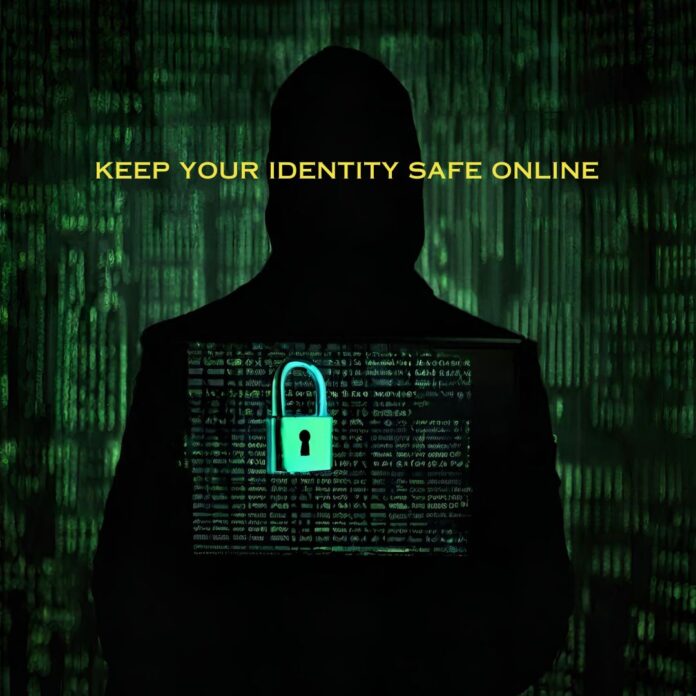Are you worried about how much of your personal information is on the internet, and at the same time, you are afraid that information is vulnerable to theft? People so easily share their private details online, and not all of them realize what kind of consequences the actions of this kind can bring.
However, since many people do not really understand what kind of steps they can take to protect their financial and personal data, we are here to help you with this guide. From this moment, you will be able to successfully manage your data while using online apps and not worry about potentially dangerous outcomes.
Use only trustworthy sites for your online activities
If you are planning to make some type of online transaction, you should primarily check whether the platform you are using is encrypted or not. If you are not sure how to check this, follow these instructions. First of all, look whether there is an extra letter “s” at the end of http in the URL, which represents a trusted platform.
Once you see that the site changes the URL address from “http” to “https” while asking for your credit card information, you can be sure that this is a secured site. Additionally, a lock symbol that appears on the right side of the address bar or even on the bottom left part of the page is a sign that the site is trustworthy and credible.
Therefore, you can be sure that you are using secure and efficient service while depositing on the best online casino sites in the Philippines or making any other transaction online.
Consider installing security suites
Have you heard about security suites? If you have not, you are going to love them! They represent unique security programs that are designed with the purpose of keeping programs and people away from your computer. In that way, no one can infect your computer and jeopardize or steal your sensitive information from you.
This works by blocking harmful software, such as viruses, phishing scams, and spyware, that can secretly be installed from the moment you click on the harmful link.
Create strong passwords
One of the simplest ways to protect your personal data online is to create a strong password that no one can crack or decode. This means that you should never use something that is associated with you.
More precisely, do not focus on the name of someone you love, address, phone number, or some other easily identifying letters or numbers. It would be a great idea to even mix up the letters and numbers and use that type of combination for your new password.

Turn on blacklisting on web browser
The web browser you use can help you protect your identity. One of the ways is finding a security option on your browser called blacklisting. This kind of option will give you a chance to set special criteria for the sites that you are navigating. As a result, only secure, trustworthy, and credible platforms will be available for you to visit.
A wireless router must be password-protected
Did you know that, while accessing the Internet, you should always use a router that is password-protected? Having a password on your wireless network will provide you a great advantage and protection that no one can access and use your Internet, not even hackers. Fortunately, most people do that, but it is good to share this as a reminder.
Find what are phishing scams
The first step in protecting yourself from phishing scams is education. Recognizing them isn’t as difficult as you think. First, you should never open emails or attachments that look suspicious. For instance, if the sender of the message is not known to you, do not click on the strange links that you received.
Additionally, never believe messages in which someone wants to offer you money, a job, or anything else that looks perfect at first glance.
Enable cookies only when required
One more way to protect your online identity is to enable cookies only when they are required by a site. Cookies keep the details of what sites you visit and what you do on them, and usually, they do not share that information. However, some reveal those details when they are in the hands of dishonest people.
Configure your device to hide online identity
From the moment you get a new computer, you should be sure that all of your information is secured, and you can do this by configuring your new device. This is a very simple procedure; you just need to set up the browser you are going to use adequately. Go to the set-up option and then configure the browser so it does not reveal your personal info, such as your name, email address, etc.
Do not forget to use a VPN
A VPN is shortened from a virtual private network and it comes with so many different advantages! You should use it whenever you are connected to some public Wi-Fi. Why is that? You are going to protect your online identity by doing this since a VPN encrypts or encodes data such as your sensitive information. In that way, your personal info is not going to fall into the wrong hands.
Set up an internet firewall
Have you heard about firewalls, a tool that is specially designed to protect your computer’s hardware or software? From the moment you have a Firewall installed, your software reviews all the data that comes to your device. Next, the software decides whether that data should be forwarded or blocked.
Conclusion
Now, you are ready to enjoy your online activities in a secure way by accepting some of the methods that we have listed above! Each method comes with certain advantages, so we recommend you use a mix of them. Are you ready to take action?
